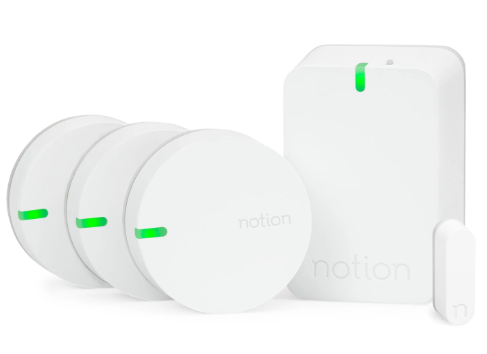The Next Wave of Smart Home Devices
The breadth of connected products in consumers’ lives continues to expand year-over-year. Households with smart home devices now have an average of six smart home devices, and ownership of any connected device (10.5 per household) continues to increase each year. Market players are now looking beyond established smart home devices like smart thermostats and networked cameras to add new and emerging products to their smart home offerings.
Products like smart water leak detectors, smart pet feeders, and smart air purifiers are slowly gaining familiarity and represent the next wave of connected devices for device-owning households. However, most of these devices remain low in adoption, and opportunity exists for established players like Amazon, Nest, and Vivint Smart Home to incorporate these devices into their smart home packages to become early market leaders.
New and emerging channels will also help expand adoption. For example, opportunity exists for home insurers to establish a reciprocal relationship with policyholders by offering discounted or complimentary smart water devices like smart water leak detectors that provide risk mitigation. Only 2% of insured homeowners own a smart water leak detector, and just 1% own a smart water shut-off valve, flow meter, or sump pump. The average water damage claim is $9,000, and smart water devices can substantially reduce this cost through early detection and notification of leaks. Insurers (and their policyholders) will benefit from new business models that strongly incentivize or mandate their adoption by households with prior claims.
Since smart water devices are also relatively easy to self-install, these devices make good candidates for direct-to-consumer offerings from home insurers. In addition, insurance companies offer consumers a clear reason to purchase smart home devices through their channel rather than through retailers—consumers intuitively trust that devices purchased from an insurance company will help prevent damage from occurring to their home. This trust suggests consumers believe insurers have a shared interest in protecting their home and perceive insurers can help them avoid losses from major perils.

Figure 1: Notion Smart Sensor Kit
Hippo, an insurtech company that promotes savings of up to 25% on home insurance, has pounced on this opportunity. Hippo provides complimentary smart home sensor kits to all policyholders. These kits include a two-sensor smart home monitoring system by Notion and premium discounts for helping to prevent common risks from fire, water damage, and break-ins.
Current adoption and consumer familiarity of these emerging devices and categories are low, so companies who secure “first-mover” status for these products will help secure additional revenues in the next five years. For insurers, risk mitigation is of utmost importance, and devices like smart water leak detectors can prevent catastrophic losses to maximize profits and build consumer loyalty.
Parks Associates research in Winning Opportunities in the Smart Home examines the market opportunity for additional new and emerging smart home devices. The research also evaluates the ever-expanding use cases in the smart home, examining priorities for different adjacencies, along with the preferred means of acquiring these devices.
Further Reading:
- Privacy concerns increasing among smart home device owners
- Smart Home Adjacencies: Building the Ecosystem
- Leveraging Smart Home and IoT for New Insurance Business Models
Next: Product Returns and the Smart Home
Previous: Technology Challenging Traditional Industries Like Home Security - Insights By Kudelski Group
Comments
-
Be the first to leave a comment.
Post a Comment
Have a comment? Login or create an account to start a discussion.


